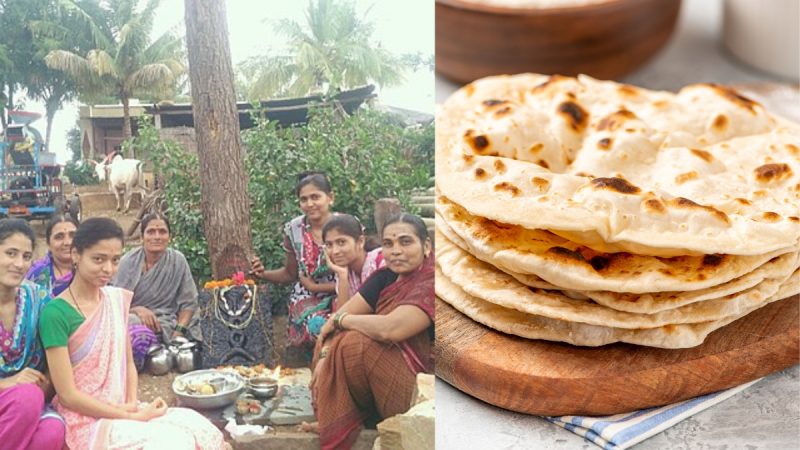Roti Habba, also known as Rotti Panchami, is a vibrant and culturally rich festival celebrated predominantly in North Karnataka and a few parts of Telangana, South Goa, and Maharashtra. It aligns with the festival of Nagara Panchami, a significant occasion in the regional Hindu calendar. Held on the first day of Panchami, Roti Habba stands out for its emphasis on community bonding, traditional food, and familial togetherness.
The Essence Of Roti Habba
Roti Habba, translating to “Roti Festival,” is celebrated with immense joy and enthusiasm. The festival is rooted in the agricultural calendar and is intrinsically linked to the harvest and seasonal cycles. The festival is celebrated during the month of Shravana, which falls between July and August, depending on the lunar calendar.
Roti Habba holds multifaceted significance. It symbolises the culmination of the monsoon season and the beginning of a new agricultural cycle. The practice of preparing and sharing a variety of traditional foods during the festival reinforces the importance of local culinary traditions.
The preparations for Roti Habba begin well in advance. Women start cooking a week before the festival, making a variety of dishes. The staple food of the festival is jolada rotti or jowar roti, a flatbread made from sorghum flour. This rotti is often complemented by a range of other traditional dishes such as Sajje Rotti, Pundi Soppu, Chickpea Curry, Eggplant Curry, and more. These dishes are prepared with great care and attention, using ingredients that are both locally sourced and seasonal.
Community And Cultural Impact
One of the most endearing aspects of Roti Habba is the practice of sharing food with neighbours and relatives. On the day of the festival, families visit each other’s homes, exchanging plates of the various dishes prepared.
The festival is not just about food but also about creating memories and reinforcing social ties. The communal sharing of food, combined with the traditional preparation and rituals, exemplifies the spirit of togetherness and mutual respect.
In essence, Roti Habba is more than a festival; it is a celebration of life, culture, and the bonds that hold communities together. It represents a beautiful confluence of tradition, food, and family, making it a cherished part of the cultural fabric in North Karnataka and beyond.
Cover Image Courtesy: Canva and Wikimedia Commons

